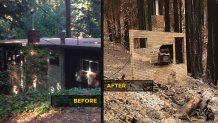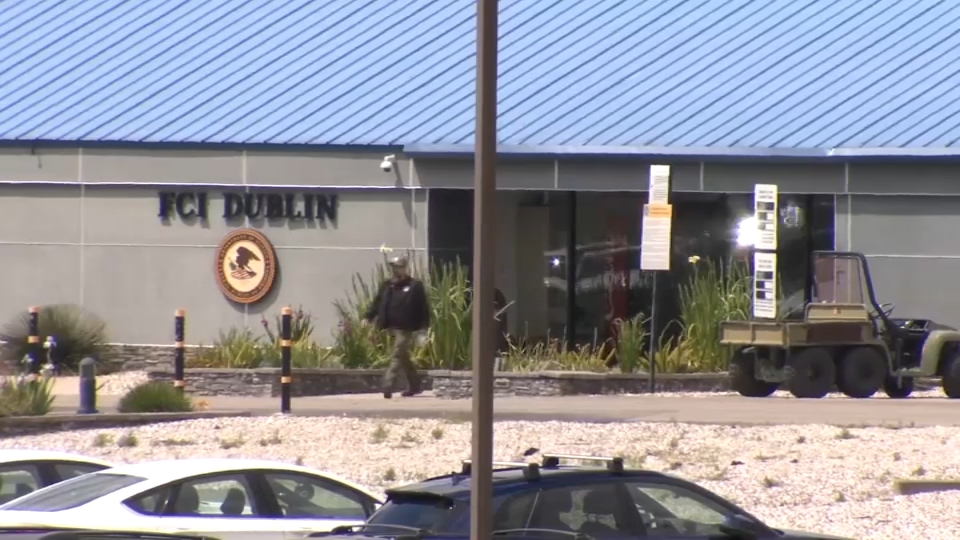Prices are up basically everywhere thanks to inflation, from gas, to food, to clothing. That’s a signal for homeowners to do something unexpected: call your insurance agent.
Why? To protect yourself from the costly intersection of wildfire (or any other disaster) and ongoing inflation.
Rebuilding your home today is probably more expensive than when you bought your homeowner’s insurance. One phone call could spare you a lot of stress and help bridge a huge financial gap.
Catherine’s Total Loss in Boulder Creek
Get a weekly recap of the latest San Francisco Bay Area housing news. Sign up for NBC Bay Area’s Housing Deconstructed newsletter.
The CZU Lightning Complex Fire raged through 86,509 acres of San Mateo and Santa Cruz Counties in 2020. CAL FIRE says 1,490 structures were destroyed in that fire. Among them were Catherine Wilson’s one bedroom home and rental cabin on her property in the Boulder Creek community of the Santa Cruz mountains.
“It is traumatic,” Wilson said of the fire, noting the home she lived in and the rental cabin she relied on for income were both total losses.

Wilson, who is just shy of her 78th birthday, bought the property in 1992 and has lived there ever since.
Local
“I feel at home when I’m here,” she told NBC Bay Area. “Even all burnt up as it is.”
Wilson had insurance on both structures to rebuild. But there’s now a quarter-million dollar hole. She said both her policies paid her the limit after she filed a claim, which included a total of $391,050 to be used specifically for rebuilding. The problem is: a builder quoted Wilson $665,249 to rebuild her home.
Wilson said that quote is, ”way more than I’m insured for and can’t afford.”
Rising Costs
The National Association of Homebuilders says, “in just the past year, prices for materials used in residential construction have climbed nearly 20%.” Most stuff in your house probably costs more to replace than it used to, too. But most insurance policies aren’t keeping pace.
A recent American Property Casualty Insurance Association survey of more than a thousand U.S. homeowners found only 30% had adjusted their coverage to account for rising building costs.
“Which could leave policyholders underinsured if catastrophe strikes,” noted Karen Collins, Assistant Vice President of Personal Lines with APCIA.
How to Protect Yourself
To avoid becoming underinsured, start by looking in your mailbox. "You get a renewal in the mail each year, take a few minutes and actually read it,” advised Janet Ruiz, Director of Communications with the Insurance Information Institute.
“Look at ‘How much coverage do I have to rebuild and replace my home and my belongings? Do I have enough?’" Ruiz added.
Look at the “declarations” page of your policy. Check how much coverage you have to rebuild your home (this is often listed as “Coverage A” or “Dwelling” coverage).
Then, contact a builder in your area and ask them: “Can I actually rebuild my home for that amount of money?”
Ruiz said, “I really encourage people to talk to contractors and look at their insurance every year because this is an unprecedented time of inflation.”
If those contractors tell you the policy numbers don’t add up, circle back with your insurance agent and ask about upping your coverage -- especially if you’ve made big improvements like remodeling or adding solar panels.
United Policyholders, which provides assistance to people navigating insurance issues, says the true replacement cost of your house is often underestimated when you first buy it and that gap just widens as time goes by. So each year, press your insurance agent to double check the true cost.

The Long Road to Rebuilding
Back in the Santa Cruz mountains, Catherine Wilson is staying in a rented room. She frequently drives up to her charred, barren property.
“Sometimes I will just come up with this chair and just sit here and enjoy being here,” Wilson said.
Wilson is using her savings to buy a trailer to live in. For the long term, she is looking into using her insurance money to buy a prefabricated cabin to live in.
Wilson says you should take action to protect yourself: review your policy. “Do it, absolutely do it,” she emphasized.
“But understand the imponderables, “ she cautioned. “Nobody knew we were gonna have the COVID productivity problems and supply chain problems and the fire came on top of that.”
Have a consumer complaint? Let us know, so we can help.




